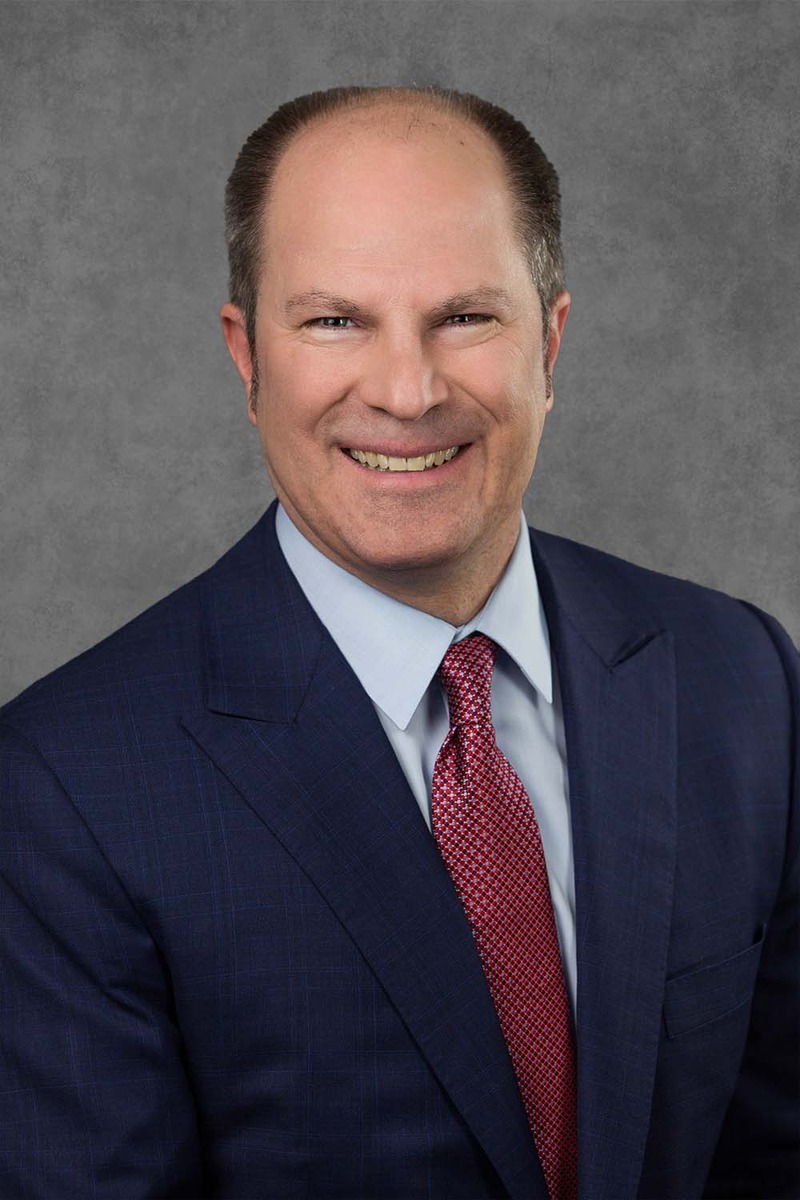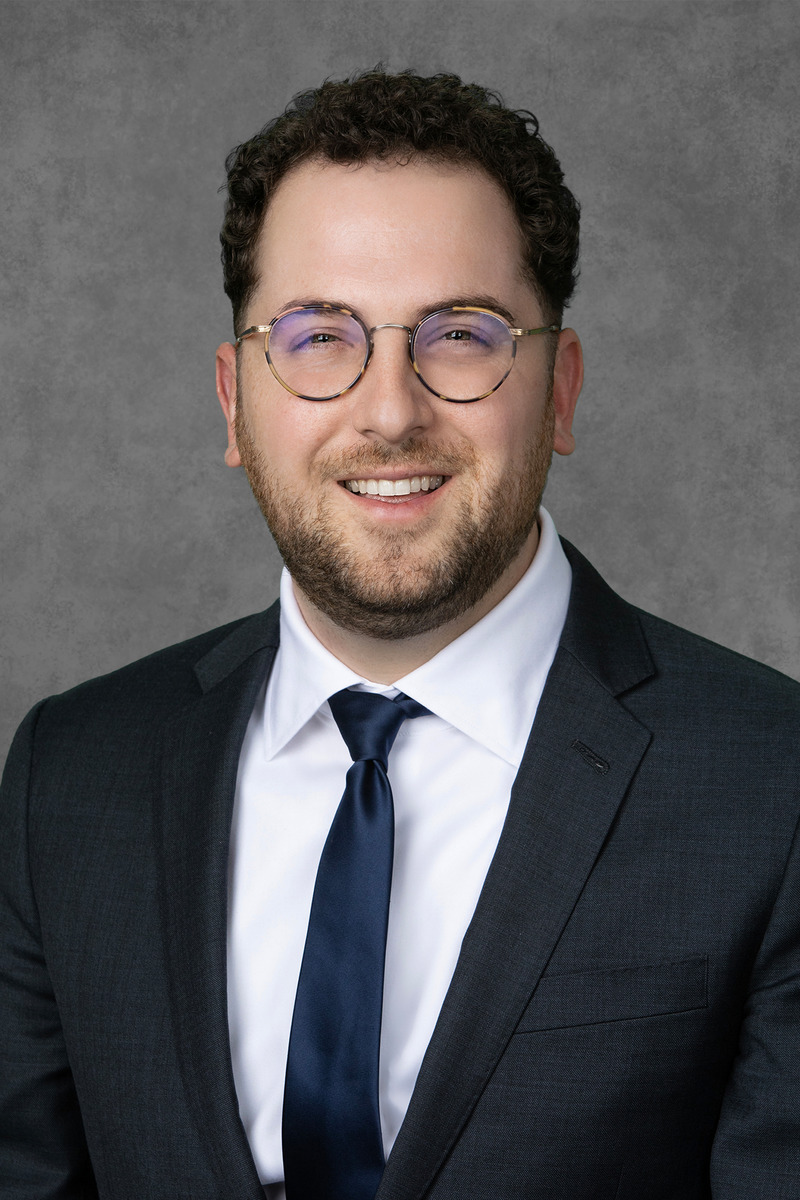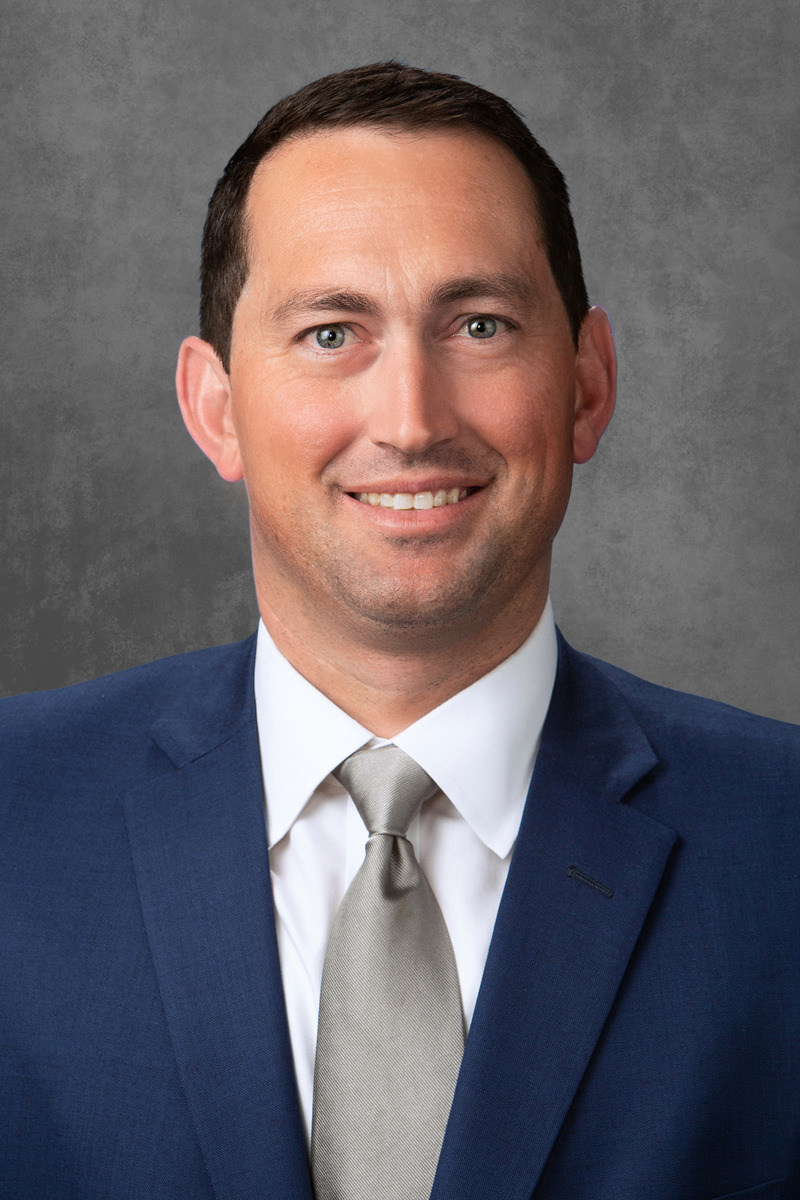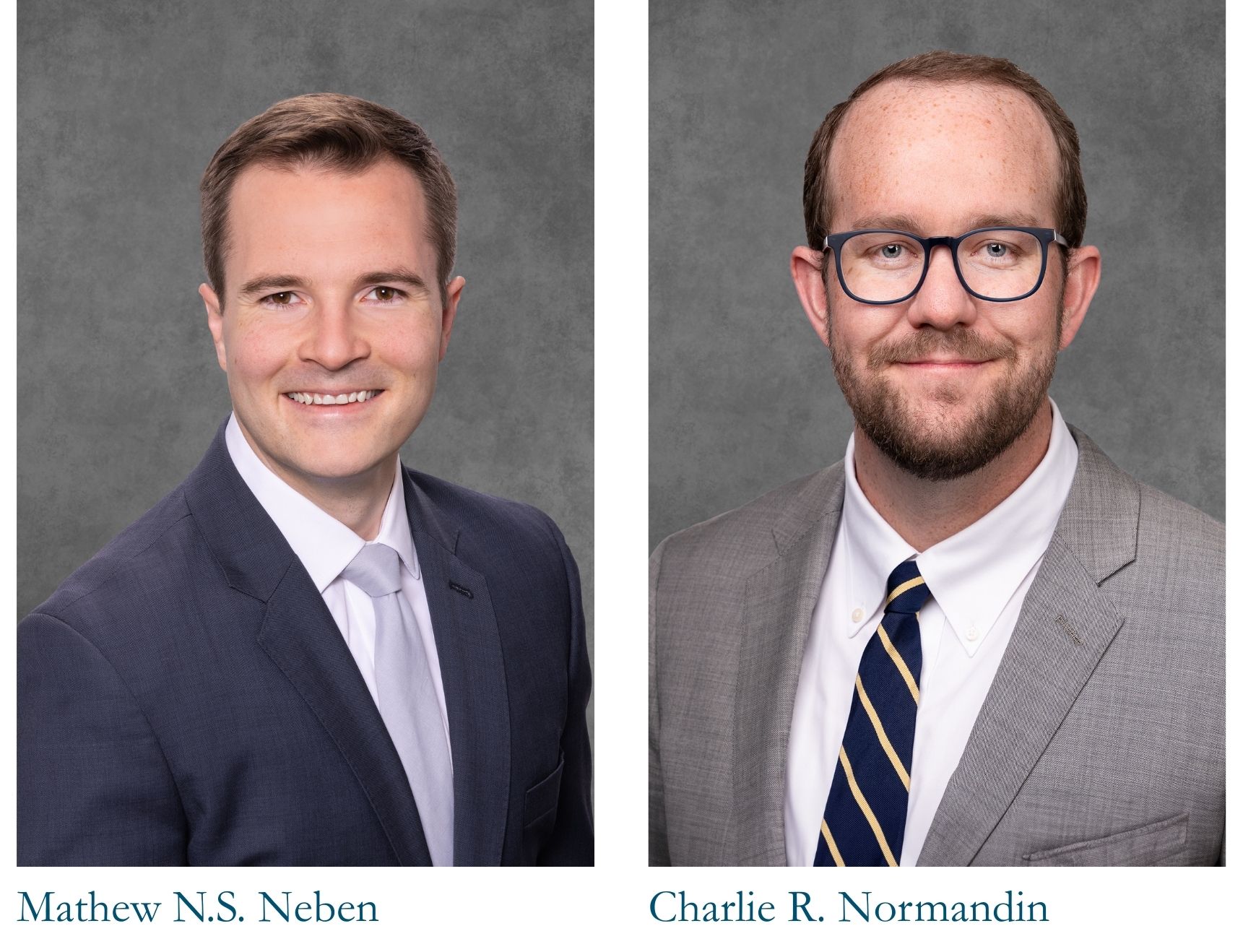Dean Byrne Featured in Nevada Business Magazine:
Investing is a balancing act between risk and reward in the best of times, but today’s uncertain economic climate and fluctuating markets present an unprecedented challenge for investors. While some people choose to stay with traditional options like money market funds and government bonds, others are taking on more risk with hard-money lending and alternative investments – everything from cryptocurrency to classic cars.
 “Given the volatility in the equity markets, some investors are reducing risk in their portfolios due to a slowing economy, stubborn inflation, and uncertainty around trade policies,” said Dean Byrne, regional manager of The Whittier Trust Company of Nevada, which has offices in Reno, Portland, Seattle, and Austin, Texas. Byrne said the U.S. is currently in a “risk-off” environment, in which investors are more risk-averse and are selling assets like stock and moving their money to lower-risk options. As a trust management company, Whittier Trust offers a wide range of financial services. Its investment management team handles core assets, such as equities, fixed income and real estate.
“Given the volatility in the equity markets, some investors are reducing risk in their portfolios due to a slowing economy, stubborn inflation, and uncertainty around trade policies,” said Dean Byrne, regional manager of The Whittier Trust Company of Nevada, which has offices in Reno, Portland, Seattle, and Austin, Texas. Byrne said the U.S. is currently in a “risk-off” environment, in which investors are more risk-averse and are selling assets like stock and moving their money to lower-risk options. As a trust management company, Whittier Trust offers a wide range of financial services. Its investment management team handles core assets, such as equities, fixed income and real estate.
In general, Nevada follows national trends in investing, such as increasing interest in digital assets like cryptocurrency, which have become widely accepted, even by institutional investors and hedge funds. Technology is also driving increased interest in companies that supply the energy needs and the physical infrastructure (think data centers) for the growing artificial intelligence (AI) sector. “We see an enormous amount of capital being deployed into public and private AI investments on the expectation of continued growth and attractive returns,” said Byrne.
The migration of wealthy Californians to Nevada is changing the nature of investing in the Silver State, according to Nevada Secretary of State Francisco Aguilar, whose office performs registration and oversight of securities, securities brokers and dealers, and investment advisors. “Enclaves like the Summit Club in Summerlin bring the investor-minded type of individual to Nevada, and with that comes more opportunity to invest in private placement deals, real estate offerings, private credit offerings, cryptocurrency, gold and silver,” he said. “[These new residents] are sophisticated investors who are looking to diversify their portfolios. There’s more investing in Nevada now than in previous years because these people bring their money and their investment portfolios with them.”
One option for savvy investors looking for diversification is hard money lending. “We specialize in private lending, with multiple lenders joining together to fund loans on Nevada real estate,” explained John Blackmon, owner/broker of NV Capital Corporation, a private lending and investment brokerage based in southern Nevada. “Our property-backed hard money loans make financing available on a wide variety of single-family and multi-family homes, business buildings, and land for development. Many people choose a trust deed investment because they are looking for more secure, high-yield returns. If properly structured by a specialized broker, trust deed investments have the potential to yield favorable returns – especially when you look at other investment options with similar risk profiles. That’s because your risks are mitigated by the value of the property being used as collateral against the loan.”
People who don’t mind taking some additional risk may consider any one of a number of alternative investments. “Alternative investments are a broad asset class, but narrow down to investments outside of traditional cash, bonds and stocks,” said Byrne. “Real estate, cryptocurrencies, blockchain, private equity, hedge funds, commodities, even collectibles like art, coins and classic cars, fall into the alternative investment bucket.”
Byrne pointed out that owning a business could also be considered a form of alternative investment, with its own level of risk and reward. “Business owners usually reinvest all their profits into their own company,” he said. “In essence, they’re investing in one stock, and they’re comfortable with that risk. Yes, it may keep them up at night sometimes, but they know it inside and out, and it’s familiar.”
He added that Nevada provides a better opportunity for multi-generational wealth creation than other states because it doesn’t have an estate tax and it offers favorable laws allowing a business owner to transfer business interests into a trust. “Gifting interests in a family business to the next generation is a powerful tool, and if structured appropriately, allows for succession planning, building and protecting family wealth, avoiding probate, and reducing taxes,” he said.
What Should New Investors Know?
“What I tell my children and grandchildren is that they can still get about 4 percent in a US Treasury mutual fund,” said Blackmon. “That’s a good place to be right now. It’s fairly risk-free, and at least your money is making something. Be a little disciplined and every so often move some money from a regular bank account to a money market fund to get some interest. Then, if you have some money to invest and don’t mind a little risk, you can get into a small deal with a trust deed. One of my kids did that and they enjoy driving out and looking at their collateral.”
 Byrne recommended that new investors start with a clear goal. “What are you trying to accomplish? Are you investing for retirement, a large future purchase, building wealth or simply creating a shoot-for-the-moon portfolio – one with high risk and potentially high reward? If that investment goes to zero, you have to be okay with that. Higher risk should come with a higher return, but it doesn’t always work as planned. Most people want investments that enable them to sleep at night.”
Byrne recommended that new investors start with a clear goal. “What are you trying to accomplish? Are you investing for retirement, a large future purchase, building wealth or simply creating a shoot-for-the-moon portfolio – one with high risk and potentially high reward? If that investment goes to zero, you have to be okay with that. Higher risk should come with a higher return, but it doesn’t always work as planned. Most people want investments that enable them to sleep at night.”
He advised new investors to think long-term and be prepared to weather the short-term ups and downs of the market. “It’s important to remember the adage: ‘Time in the market is better than timing the market,’” he said. “In the first week of April, [the stock market] had some pretty rough days. Then, with the announcement that tariffs were being delayed for 90 days, the S & P jumped seven percent, just like that. Nobody could have predicted that amount of volatility or timed it appropriately. Just start early and invest consistently, in good times and bad times. Long-term investments lead to appreciation and compound interest.”
Aguilar would advise a new investor to perform their due diligence before trusting anyone with their money. “Research who will be managing your money and guiding your investments,” he said. “Call the Secretary of State’s office to verify that they’ve been licensed. Doing the verification process will save you a lot of heartache. If the investment vehicle is complicated, get someone to explain it to you in terms you can understand, and trust your gut. If it sounds too good to be true, it isn’t [true].”
Avoiding Fraud in a Dangerous World
While there is a certain amount of risk in any investment, a very real risk is becoming a victim of a fraudulent investment scheme. Aguilar reported that in fiscal year 2023, his Securities Division received complaints of securities fraud from investors totaling more than $16 million, and in fiscal year 2024 that number was almost $10 million. Fraud cases are investigated by the Securities Division and prosecuted by the state attorney general and county district attorneys.
“We’re especially looking out for what’s called ‘pig butchering,’ which typically targets males with a social media presence,” Aguilar said. In this scheme, scammers build relationships with victims through social engineering to lure them into investing in fake opportunities or platforms, ultimately leading to financial losses. They “fatten the pig before slaughter” by getting them to make increasing monetary contributions, generally in the form of cryptocurrency, to a seemingly sound investment before the scammer disappears with the contributed monies.
“When that happens, people are often embarrassed to tell us that they’ve been the victim of investment fraud,” said Aguilar. “In addition, many of the fraudsters are located overseas and it’s hard to get jurisdiction over these individuals. What we can do is make sure the marketplace is educated about these issues so they don’t fall victim to them.” He advised investors to make sure they are dealing with a licensed advisor or a broker-dealer with a good reputation – someone who’s a part of the industry, not just a random person who contacted them online.
“Find a reputable financial advisor to guide you,” said Byrne. “Read the fine print about their fee structure and any proposed investments. Don’t be afraid of getting a second opinion.”
 Blackmon advised people considering hard-money lending to ask to see an appraisal or a broker price opinion on the property. “That will give you a third-party valuation that the property is worth more than the proposed loan amount,” he said. “Be sure to go with a company with experience in real estate lending, and in my opinion, you should go with a brokerage company that uses a third-party service to collect the monthly payments from the borrowers and distributes them to the investors. Unscrupulous brokers may otherwise divert the payments to their own account and be tempted to use that money for other purposes. It’s just one more level of protection.”
Blackmon advised people considering hard-money lending to ask to see an appraisal or a broker price opinion on the property. “That will give you a third-party valuation that the property is worth more than the proposed loan amount,” he said. “Be sure to go with a company with experience in real estate lending, and in my opinion, you should go with a brokerage company that uses a third-party service to collect the monthly payments from the borrowers and distributes them to the investors. Unscrupulous brokers may otherwise divert the payments to their own account and be tempted to use that money for other purposes. It’s just one more level of protection.”
Aguilar noted that, although reported losses to fraudsters total millions of dollars each year, victims of fraud often lose their entire life savings and are not compensated. Many guilty parties in securities cases do not have any money to pay court-ordered restitution to their victims. In FY 2023, investors received restitution of only $205,000 and in FY 2024 it was just over $1 million. His office is supporting a bill in the Nevada Legislature this year that aims to fill the gap between the restitution that’s owed to victims and what they actually receive. Senate Bill 76, entitled “Victim Restitution Act,” would create a fund from monies received from enforcement actions due to violations of the Nevada Securities Act (NRS 90). Nevada residents who have received an award for restitution in a criminal conviction can apply for restitution from the fund if they don’t get repaid from the fraudster.
“The main reason we are proposing this legislation is that it provides a way for Nevada residents to obtain desperately needed relief after losing what is often a significant chunk of their savings to someone who has defrauded them,” said Aguilar. “Often, victims of securities fraud are in the most vulnerable communities, especially our senior communities and others on fixed incomes.”
"Safe" is Relative
Aguilar advised potential investors to discuss the level of risk with their money manager and decide what they’re comfortable with. “100 percent safe would be putting cash in your mattress, but even then, you run the risk of theft,” he said. “Putting your money in an FDIC-insured checking or savings account is safe, but there’s the opportunity cost of giving up a chance for appreciation, and inflation may erode the value of your principal. Medium-risk may be S&P 500 stocks, and high-risk would be private-party deals or hard money investments. You should only take high risks if you have the capacity, and if it won’t change your lifestyle if you lose your investment.”
“Safe is a relative term,” agreed Byrne. “Cash in a low-yielding, FDIC-insured bank account has risks of eroding your purchasing power due to the effects of inflation.”
What's Ahead?
“Right now, we have a fairly new president and there are some unknowns about tax policy and other things,” said Blackmon. “We’re not sure if that will lead to more investments in real estate or to fewer people willing to invest. This spring, things have slowed down for us because of uncertainty on the macro level. If you’re thinking of building an $83 million building, you’d be a little nervous to start. You may want to wait a few months before investing, to see which way the wind is blowing and what interest rates will be doing. Some people say tariffs won’t cause interest rates to rise, but it seems to me that increasing costs will lead to an increase in interest rates. I’m looking forward to being proved wrong. It will be interesting to watch what’s ahead in the next six months. I still look to the US government, even with whatever issues are going on right now. It’s the best country in the world.”
Dean Byrne is the Nevada Regional Manager, Executive Vice President, and Senior Portfolio Manager with the Whittier Trust Company of Nevada.
Featured in Nevada Business Magazine. For more information on Whittier Trust's investment services and portfolio management strategies, start a conversation with a Whittier Trust advisor today by visiting our contact page.
From Investments to Family Office to Trustee Services and more, we are your single-source solution.


















 Whittier Trust is pleased to announce the promotions of
Whittier Trust is pleased to announce the promotions of